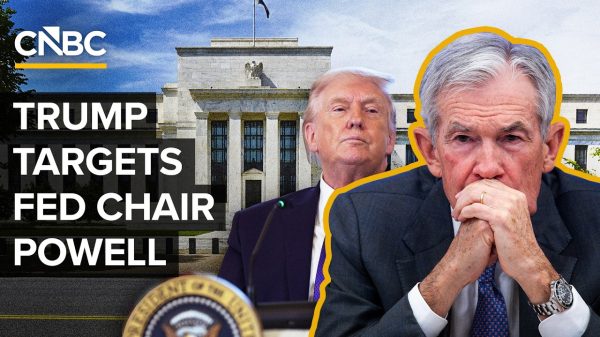The crypto industry is assessing what to make of a potential crackdown by the U.S. Justice Department on crime on digital platforms.
Eun Young Choi, the director of the department’s national cryptocurrency enforcement team, told the Financial Times in an interview published Monday that the Justice Department is focusing on companies that enable crimes to happen or commit them themselves, such as money laundering.
“The comments from Ms. Choi reflect a culmination of events over the past few years. The U.S. government has long understood that crypto is not only borderless but also virtual, which makes regulatory or criminal enforcement much more difficult for a myriad of jurisdictional reasons,” said Miles Fuller, head of government solutions at TaxBit, a crypto tax tracking and filing company.
Authorities in the U.S have already made strong efforts to crack down on crypto crime. The Justice Department, for example, arrested digital exchange Bitzlato’s founder in January after he allegedly transmitted around $700 million in illicit crypto funds. In February, a man was charged with defrauding Mango Markets, a decentralized finance platform, of crypto worth $110 million.
While crypto industry insiders welcome the crackdown on crime, some question the potential impact on crypto innovation.
“I hope that recent statements from the DOJ do not contribute to further market uncertainty resulting from regulators’ ongoing enforcement-based approach to regulation,” said Rahson Boykin, general counsel at Hashflow, a decentralized exchange. “It would be beneficial for all parties involved if Congress could pass clear and comprehensive crypto regulations, providing the industry with guidance on the necessary compliance rules to foster overall growth.”
Boykin says that lawmakers need to recognize that if they continue on this path, crypto may be forced out of the U.S. market.
These are similar sentiments to those shared by Coinbase CEO Brian Armstrong, who has encouraged the U.S. Securities and Exchange Commission to adopt strong rules that govern and regulate assets that are traded digitally, including potential rules to identify which digital assets are securities. At the same time, Armstrong has expressed concern that regulating certain aspects of the crypto industry, such as staking, would be a terrible path for retail traders, and that the U.S. needs to make sure that new technologies are encouraged to grow, and are not stifled by lack of clear rules.
The Securities and Exchange Commission has also cracked down on crypto this year. In January, it hit Genesis Trading and Gemini, two popular crypto exchanges, with charges related to unregistered securities. In February, the SEC charged Do Kwon, of Terraform Labs, for allegedly defrauding crypto investors. In March, the SEC also came down on stars like Lindsay Lohan and Jake Paul for allegedly illegally touting crypto securities.
The greater enforcement around crypto crimes in the U.S. came after the collapse of FTX in November. FTX was once one of the most popular crypto exchanges in the world, led by former founder and CEO Sam Bankman-Fried, who was arrested in the Bahamas in December.
But FTX wasn’t the only culprit to shake the industry. In 2022, crypto hacks and scandals took over $3 billion from victims.
“In the fallout of the FTX bankruptcy, the U.S. is possibly learning that many more U.S. individuals than it thought were using the offshore version of FTX,” said TaxBit’s Fuller. “That also seems to be what the U.S. government feels is happening with Binance as well.”
Fuller says in that in the short term, this may hurt the industry as it highlights the illicit side of how crypto may be used. “But in the longer term it will push the industry toward a more holistic solution for dealing with bad actors on these platforms and how these platforms will need to evolve if mainstream crypto adoption is to be expected.”
Read the full article here











